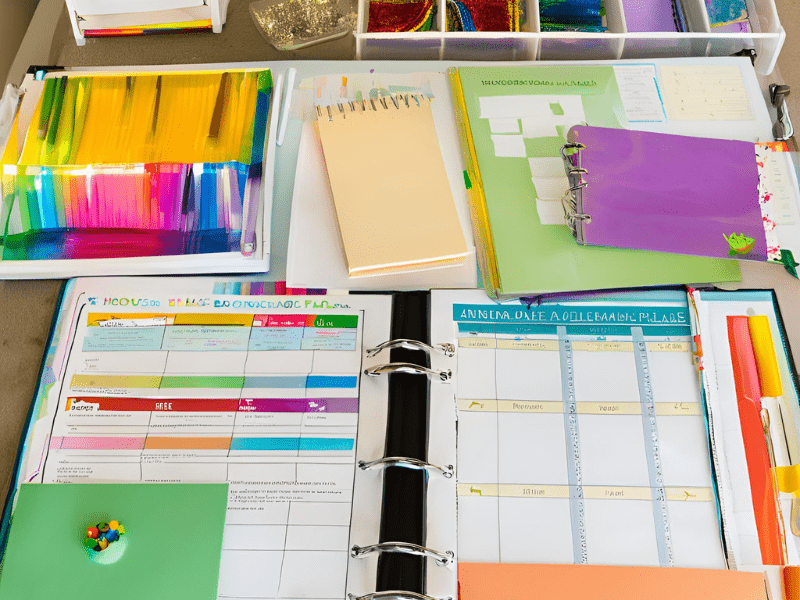Homeschool Requirements in Florida: A Practical How-to Guide
Interested in homeschooling your child in the Sunshine State? You’re not alone. Florida’s homeschooling community continues to grow as parents seek greater flexibility and personalization in their children’s education. But as you jump in, it’s important to understand the Florida homeschool laws and regulations that guide this journey. Below, you’ll find a step-by-step roadmap on how to meet homeschool requirements in Florida, from filing key paperwork to staying compliant year after year. By the end, you’ll have the confidence and clarity you need to give your child a successful homeschooling experience.
1. The Basics of Florida Homeschool Laws
Before you dive in, it helps to know why Florida’s homeschool environment is so popular. Unlike some other states with stricter requirements, Florida offers a relatively parent-friendly path—yet still upholds important educational standards.
- No Specific Teaching Credentials: Florida does not require a teaching certificate or degree to homeschool. Parents or guardians with a high school diploma (or equivalent) are typically sufficient.
- Flexible Curriculum: Florida law does not mandate specific textbooks or programs. Parents have the freedom to choose materials that suit their child’s learning style.
However, there are still formal steps to follow so you remain on the right side of Florida homeschool laws and regulations. For an overview of official guidelines, visit the Florida Department of Education’s Homeschool Page.
2. Submitting Your Intent to Homeschool
The first step in how to meet homeschool requirements in Florida is filing a Notice of Intent (NOI) with your local school district’s superintendent. This short letter should include your child’s name, birthdate, and home address. Timing is key:

- When to Submit: You must file the NOI within 30 days of starting your homeschool program.
- How to Submit: A simple letter via certified mail or email is usually enough. Check your local district website for the preferred submission method.
- Keep a Copy: Always keep proof of filing (like a return receipt or email confirmation) in your homeschooling records.
Pro Tip: Don’t confuse the NOI with an affidavit or a separate license. Florida just requires this basic notice as your formal intent to homeschool.
3. Recording Attendance and Progress
One of the main Florida homeschool laws and regulations is maintaining a reliable record of your child’s academic progress. Though Florida is flexible, you still need the following:
- Attendance Log: Keep a record of days or hours you’ve spent on schooling. While Florida does not specify a minimum number of days, tracking attendance can prove your child has been consistently educated.
- Lesson Plans: Have a general overview of the curriculum or lessons covered. Detailed daily plans aren’t mandatory, but a clear framework ensures you stay organized.
- Work Samples: Assignments, projects, essays—anything that demonstrates your child’s progress over the course of the year.
By the end of each school year, you’ll want a tidy portfolio that shows evidence of educational activity. This helps you (or your evaluator) confirm that you’re meeting Florida’s academic requirements.
4. Annual Evaluations: A Key Part of Homeschool Requirements in Florida
Each year, Florida law requires you to evaluate your child’s academic progress. You can do this in several ways:
- Standardized Test: A nationally recognized test administered by a teacher or testing agency.
- Portfolio Review: A certified teacher (with a valid Florida teaching certificate) can evaluate your child’s portfolio and attest to adequate progress.

- Accredited Online Program: Some families use an online homeschool or virtual school that provides its own evaluations. Confirm the program is recognized within Florida’s guidelines.
Important: If you choose a portfolio review, schedule it within the 12-month deadline from your initial Notice of Intent. Failure to complete this evaluation can place your homeschool status at risk.
5. Resources and Support for Meeting Homeschool Requirements in Florida
Learning how to meet homeschool requirements in Florida becomes easier when you tap into a robust network of resources. Here are a few places to start:
- Local Homeschool Groups: Many regions have co-ops or support groups where parents share best practices, curriculum advice, and sometimes hire group tutors.
- Online Communities: Websites, forums, and social media groups dedicated to Florida homeschoolers can give real-time tips on everything from record-keeping to extracurriculars.
- Statewide Organizations: Groups like the Florida Parent Educators Association (FPEA) often provide annual conferences, legal updates, and guides.
6. Withdrawing from Public School
If your child is currently enrolled in a public or private school, you’ll need to complete a withdrawal process before officially homeschooling. Typically, this involves:
- Notifying the School: A letter or in-person meeting, depending on your district’s policies.
- Filing Your NOI: Submitting the Notice of Intent promptly ensures there’s no lapse in your child’s education.
- Collecting Records: Obtain copies of your child’s transcripts and relevant documents. These can be helpful if you return to a formal school system in the future.
7. Don’t Overlook Curriculum Freedom
One of the biggest perks of Florida homeschooling is the freedom to choose or design your own curriculum. Consider:
- Unit Studies: Integrate subjects like history, geography, and reading around a single theme.
- Online Curriculum: Many parents choose fully digital programs that come with lesson plans, grading systems, and even live classes.
- Hybrid Approaches: Mix textbook-based learning for core subjects like math and grammar with hands-on science experiments, field trips, or local museum classes.
Pro Tip: If you’re curious about scholarships or want to fund advanced or specialty classes, check out this guide on Step Up Scholarships to see how your family might qualify for additional educational resources.
8. Navigating Your Homeschool Portfolio
Florida homeschool laws and regulations specify you maintain a portfolio and retain it for at least two years. What should it look like?
- Basic Records
- Attendance log
- List of educational materials used throughout the year (books, online courses, etc.)
- Work Samples
- Essays, quizzes, art projects, science experiments
- Photographs or short videos can demonstrate progress in performance-based subjects like music or public speaking
- Evaluation Documentation
- Standardized test results or teacher evaluations
- Keep them securely filed or scanned for easy reference
Aim for organization and completeness. That way, if the district ever requests a portfolio review, you’ll have everything at your fingertips.
9. Completing the Year and Next Steps
Once your annual evaluation is done, what’s next?
- Submit Evaluation if Required: In some cases, your evaluator may send a copy directly to the superintendent. However, confirm local policies—some districts ask you to mail or email a copy of your child’s progress.
- Plan the Next Year: Homeschooling is often year-round, but even if you follow a traditional school calendar, use breaks to research new materials or refine your approach for the next grade level.
- Maintain Documentation: Continue to store each year’s portfolio safely. If you decide to re-enroll your child into traditional school, these records can expedite proper grade placement.
10. Setting Your Child Up for Success: Going Beyond Homeschool Requirements in Florida
Beyond legal requirements, homeschooling success in Florida boils down to customizing education and staying engaged with your child’s learning. Some final ideas:
- Combine Outdoor Exploration: Florida’s natural beauty and wildlife can transform lessons in science, art, and physical education.
- Experiment with Different Teaching Styles: Not every child learns the same way. Try visual, auditory, or kinesthetic methods.
- Social Opportunities: Join community sports, theater groups, or homeschool co-ops so your child stays socially active.
Remember, homeschooling doesn’t have to mirror a traditional school environment. Embrace flexibility and creativity to keep your child engaged.
11. Where to Go Next: Enhance Your Child’s Learning Online
If you’re looking to enrich your homeschool journey, consider enrolling your child in online homeschool classes. High-quality virtual programs can supplement your core curriculum with interactive lessons, quizzes, and peer discussions—all from the comfort of your home.
One great option is EatonAcademic.com. We offer:
- Structured courses designed to meet (and often exceed) Florida homeschool standards
- Experienced instructors who can guide your child through specialized subjects
- Flexible scheduling to match your homeschool routine
Enroll now to give your child the benefits of a well-rounded, interactive learning experience—and check off an important part of how to meet homeschool requirements in Florida with confidence.

Final Thoughts
Navigating Florida homeschool laws and regulations might seem daunting at first, but with careful planning, your family can thrive in this flexible educational environment. By filing an Intent to Homeschool, keeping thorough records, and arranging an annual evaluation, you’ll meet the state’s requirements and open up a world of personalized learning opportunities.
So, why not get started today? With a bit of organization and creativity, you can offer your child an enriching educational path—right from your Florida home. Then, if you’re ready to elevate your homeschooling experience even further, sign up for an online homeschool class and see just how far your child can go. Happy homeschooling!
